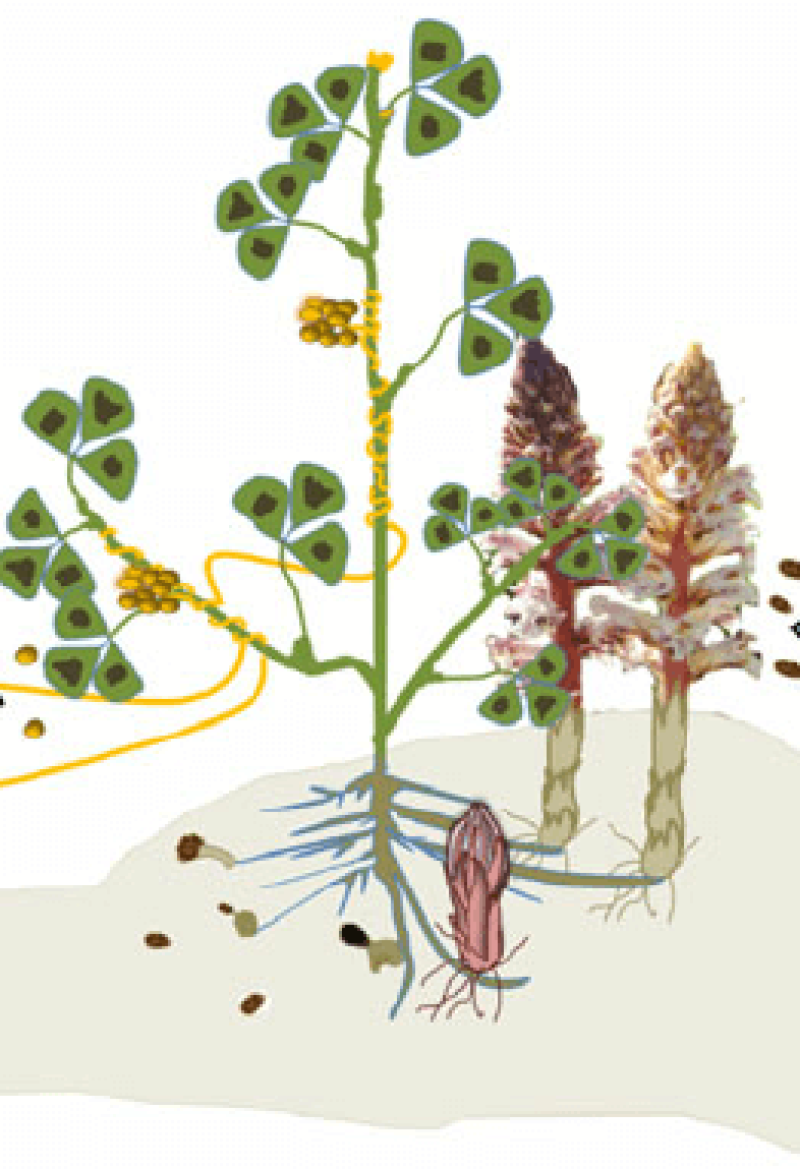Sneaky parasitic weeds may be able to steal genes from the plants they are attacking and then use those genes against the host plant, according to a team of scientists.
…researchers detected 52 incidences of the nonsexual transfer of DNA — known as horizontal gene transfer, or HGT — from a host plant to members of a parasitic plant family known as the broomrapes, said Claude dePamphilis, professor of biology, Penn State.
…
While horizontal gene transfers in less complex species, such as bacteria, are common, most evolution in more complex organisms is driven by the sexual exchange of DNA…[but] the researchers suggest that the close feeding connections of parasitic plants with their hosts may increase the chances of intact genes traveling from the host to the parasite’s genome…
…
Farmers throughout the world struggle with these types of parasitic plants, which are so numerous in some areas of the world they become a major source of crop loss.
…
Future research may investigate the mechanism of horizontal gene transfer to help engineer improved plant defenses against parasitic attacks, dePamphilis said.
The GLP aggregated and excerpted this blog/article to reflect the diversity of news, opinion and analysis. Read full, original post: Parasitic plants may form weapons out of genes stolen from hosts































